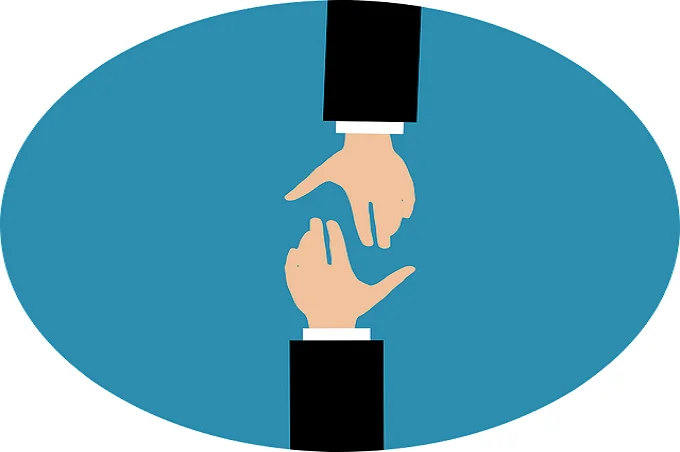Why being honest with yourself and others are important

You probably find yourself in situations where you don’t want to be honest. Sometimes you choose to deceive yourself and other people to avoid unpleasant reactions to your words, conflicts, and criticism in your address. But being honest is important; without it, you will find it very difficult to interact with others, perceive the reality around you, and form healthy self-esteem. We have collected a few problems that you can avoid if you stop lying to yourself and others.
9 reasons for being honest with yourself and others are important
1. Deceived expectations
When getting to know someone, you may form an opinion about him or her if you don’t have enough information. You allow yourself to judge the other person by his or her manner, behavior, and inner qualities, which he or she displays during the conversation. But more often than not, when meeting someone for the first time and afterward, people try their best to leave a good impression of themselves. It’s important to keep this in mind and understand that the person is in no hurry to open up to you. Consequently, everything you expect from him or her is just an educated guess, not supported by facts.
You should admit to yourself that your expectations are just your problem. If the person doesn’t make promises to you, it’s unlikely that what you have in your head about him or her will ever come true in real life. Remain as honest with yourself as possible: Don’t let yourself be deceived by those around you. If you want to know something, ask, don’t make it up for the person.
2. Waste of time

An unfortunate situation frequently occurs when you waste a lot of time and energy making plans or trying to change someone’s attitude toward you. Instead of engaging in one honest dialogue that puts things in perspective and helps you figure out if you have a chance, you choose self-deception and ignorance. You are so afraid of hearing a negative answer and realizing that all your words and actions are meaningless that you continue to waste your resources hoping for the best mindlessly.
Stop engaging in self-deception – it won’t do any good. Instead of making plans for someone, first, try to find out if the person is interested in you if your interests and outlook on life match if you are ready to meet each other. This action will be much more effective and save you time, energy, and nerves. It is better to face the truth right away than let yourself live in ignorance.
3. Conflicts due to distorted communication
You may hide your feelings, such as resentment, anger, and annoyance. This happens mostly when you do not want to spoil your relationship with someone and are afraid they will overreact to your grievances. You begin to convince yourself that you are just taking things personally and that it is okay to ignore an unpleasant remark or ignore an act that has hurt you.
The person will continue to behave the same way to you, and you will continue to resent them and feel hurt. You won’t be able to avoid conflict because your communication will be distorted: while one person thinks everything is fine, the other will suffer from misunderstandings.
It’s a bad idea to pretend that everything is fine if the person is causing you negative emotions somehow. Even if you are a very patient and calm person who can hold back your discontent for a long time, sooner or later, you will explode and say everything that is on your mind. And then the chance of your communication continuing will be minimal.
4. Lack of support

If you realize that you’re not getting enough support from your family and friends, try to answer the question: Are you being honest with them? People can’t help you if you are careful to hide your emotions, convince them that you are okay, and downplay your problems.
For the people around you to support you, you will have to open up to them. You will have to tell them what has happened in your life, describe your reaction to it, and share your experiences. People can’t read your mind, and if you’re secretive with your interlocutor or lie when you say, “How are you?” they’re unlikely to know there’s anything wrong with you.
5. Unrealistic goals
It takes a lot of courage to admit that your goals are unrealistic. You may delude yourself into believing that nothing is impossible and that you have as good a chance as anyone else. But the truth is that each person has a different amount of resources at the start and an extra level of knowledge and skills. Consequently, some can achieve their goal, while others will have to lower their expectations.
You have to be honest with yourself – analyze what you are aiming for and understand what is achievable and what is not. This way, you can save a lot of resources, keep your confidence and strength, and set yourself up to work on your goals fruitfully.
6. Breaking personal boundaries
If you’re used to being quiet about your emotions and afraid, to be honest with others so you don’t make them uncomfortable, you’re probably letting other people violate your boundaries. Your interlocutor may make unpleasant jokes about you, ask you personal questions, or offer criticism that you didn’t ask for while treating them in the most polite and friendly way possible.
This is a huge mistake – if you don’t find the strength, to be honest with people around you, they will continue to violate your boundaries without seeing any resistance from you. Start talking about how uncomfortable you are with someone else’s behavior, learn to say no, and stand up for yourself. No one will do it for you.
7. Being unhappy with your life

When you are constantly trying to fool yourself into thinking you are doing just fine and enjoying your life, sooner or later, you are bound to become painfully frustrated. The longer you procrastinate with unpleasant confessions, the more uncomfortable you will be when you face reality.
If you feel it’s time to change something you’re not happy with – your attitude, your job, where you live and so on, do it now, don’t put it off, and certainly don’t try to convince yourself that you’re fine as you are. It won’t work, and you’ll live your life in discomfort.
8. Low self-esteem
If you can’t be honest with yourself, you’re probably used to ignoring the things about yourself that make you uncomfortable. You know your shortcomings, but instead of changing the situation and trying to be a better person, you try to convince yourself that everything is okay and you should accept yourself.
Unfortunately, acceptance doesn’t always work. Sometimes you need to admit that you are annoyed by your appearance, personality traits, or habits. This will motivate you to work on yourself extensively, further boosting your self-esteem.
9. Lack of resources for yourself
When you’re afraid, you sacrifice your time, energy, money, and other resources to be honest with the people around you. Instead of saying “no,” you go along with any offer you make, not wanting to offend the person or leave them alone with their problems. But you’re not the only one who can help them, and you shouldn’t take responsibility for adults and their feelings.
Try to be as honest as you can with the people around you – this will save you a lot of resources. You can use them to improve your own life, realize your goals, and have a good holiday.




